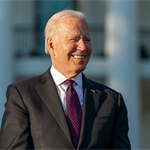USDA launches climate-smart ag, forestry partnership initiative
Energy Disrupter
ADVERTISEMENT
The USDA on Sept. 29 announced a new initiative to finance the deployment of climate-smart farming and forestry practices to aid in the marketing of climate-smart agricultural commodities.
Guided by science, the agency said it will support a set of pilot projects that provide incentives to implement climate smart conservation practices on working lands and to quantify and monitor the carbon and greenhouse gas (GHG) benefits associated with those practices. The pilot could rely on the Commodity Credit Corp.’s specific power to aid in expansion or development of new and additional markets.
“Through extreme weather, drought and fire, our agriculture producers are on the frontlines of climate change,” said Agriculture Secretary Tom Vilsack. “The new Climate-Smart Agriculture and Forestry Partnership Initiative will support pilots that create new market opportunities for commodities produced using climate-smart practices and position U.S. farmers, ranchers, and forest landowners as leaders in addressing climate change. The pilots will invest in the science, monitoring and verification to measure the benefits of these climate smart practices. Today, we ask for public input to inform our decision making and enhance the design of this initiative.”
A request for information (RFI) is set to be published in the Federal Register on Sept. 30, with a public comment period open through Nov. 1.
The USDA said it is specifically seeking input on the current state of climate-smart commodity markets, systems for quantification, options for criteria for evaluation, use of information collected, potential protocols, options for review and verification, and inclusion of historically underserved communities.
Insights gained through the public comment period will inform development of a notice of funding availability (NOFA) soliciting Climate-Smart Agriculture and Forestry Partnership Initiative project proposals that encourage the adoption of climate-smart practices and promote markets for climate-smart commodities. That NOFA is expected to be announced this fall, with project proposals accepted in early 2022.
The RFI set for publication in the Federal Register specifically states that opportunities for the initiative include markets for low-carbon biofuels and renewable energy.
The Renewable Fuels Association is stressing that ethanol is a perfect fit for the USDA’s new climate-smart efforts. “Earlier this year, RFA’s ethanol producer members led the way in pledging to reach net-zero carbon emissions, on average, by 2050 or sooner, and the program announced today by USDA could play a critical role in helping us get there,” said Geoff Cooper, president and CEO of the RFA. “Ethanol is the perfect climate-smart commodity, and we look forward to reviewing and commenting on USDA’s new program.”
The American Coalition for Ethanol said the group is encouraged by the USDA’s new initiative, noting it can promote low-carbon farming practices and biofuels. “ACE thanks Secretary Vilsack for this new and visionary USDA initiative to support the adoption of farm-level practices which help result in products such as ethanol that reduce GHG emissions,” said Brian Jennings, CEO of ACE. “This new Climate-Smart Partnership Initiative is similar to the historic Regional Conservation Partnership Program (RCPP) grant USDA awarded to ACE and several partners just last week to help establish a protocol for biofuel producers and farmers to document the carbon intensity benefits of changes in agricultural practices. We appreciate Secretary Vilsack recognized this investment in his livestreamed remarks today.
“This past April, ACE submitted comments urging USDA to develop a commonsense framework to help overcome the risks and cost barriers associated with adoption of farm-level practices that sequester carbon in the soil, and for assistance in establishing a way to track and measure the benefits to the overall carbon intensity of corn ethanol. Ultimately, we need farmers and ethanol producers to reap the rewards of these practices in future low carbon fuel markets. We were delighted to see our project was chosen last week to receive funding through the NRCS RCPP to demonstrate this very concept, and we’re hopeful this new program announced today can provide further opportunities to demonstrate how value can go all the way back to farmers for producing low carbon biofuels.
“ACE will work with USDA to establish this new initiative and incorporate our practical experience in implementing the first of its kind RCPP project. ACE looks forward to partnering with USDA to establish a marketplace at scale that rewards farmers and biofuel producers for the role they play in reducing GHG emissions.”
















